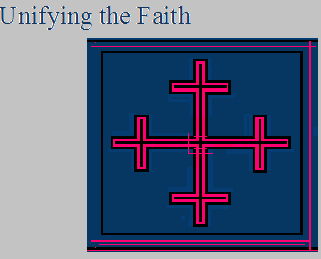Three of the Gospels in the New Testament contain the story in which Jesus asked his disciples the question: “who do people say that I am?” This account in the Gospel of Matthew 16:13-17 reads as follows:
"16:13 Now when Jesus came into the district of Caesarea Philippi, he asked his disciples, "Who do people say that the Son of Man is?"
16:14 And they said, "Some say John the Baptist, others say Elijah, and others Jeremiah or one of the prophets."
16:15 He said to them, "But who do you say that I am?"
16:16 Simon Peter replied, "You are the Christ, the Son of the living God."
16:17 And Jesus answered him, "Blessed are you, Simon Bar-Jonah! For flesh and blood has not revealed this to you, but my Father who is in heaven.”
In truth the question becomes more direct when Jesus asks his disciples:"but who do you say that I am?" Peter gave the right answer which was "you are the Christ, the Son of the living God." The Scriptures seem to provide an answer to the question, and if we fast-forward two millennium, and we look around it seems that many are still giving an answer to this question of “who do men say that I am?”
When one looks at the entire Christian community today, one sees many groups with many different names. Anyone with a bit of knowledge in church history is aware of what has basically transpired over the past two thousand years which has resulted in this current status. The beginning of Church history is found in the book of Acts, but this Church has evolved into something completely different, today. Why do these differences exist today? Theology, Theology....
In the world today there is a multitude of Christian denominations and groups, and perhaps this would not be so if on October 31st, 1517, a man named Martin Luther would not have posted Ninety-five Theses on the door of a church in Germany. Luther began a Reformation which was perhaps very similar to a revolution, and that Reformation began a change in ecclesiastical theological thought that has only incremented and diversified the Christian religion and its believers until the present day. The Reformation, indeed, eventually caused a transformation in the world, and also in the very institution whose alleged corrupt influence Luther protested. If you don't agree with this thought, just remember Vatican II, and its purpose. So, we arrive at the present day, and we know that there are more than 2 billion Christians. About, half of the foregoing are Roman Catholics (Western Church). In all fairness, the Reformation took place in the Western Church because the Eastern Church never divided in the same way. The Eastern Church simply split from the Western back in 1054, and has not really had a type of a schism like the Reformation within its members. In fact, most of the groups that have divided come from the Post-Reformation era and more recent period of Christianity whose members in a sense really come out of the Roman Catholic Church, although not directly. There is much history to mention, but the fact is that there is no real unity. So, "who do men say that I am" may be an easy question to answer in a historical context, but in a theological context, today, we have many opinions that will not compromise because somehow most think that they have the absolute answer or truth.
Reference:
ESV Bible
Note: I will probably be using many Scripture Translations on this blog.

No comments:
Post a Comment